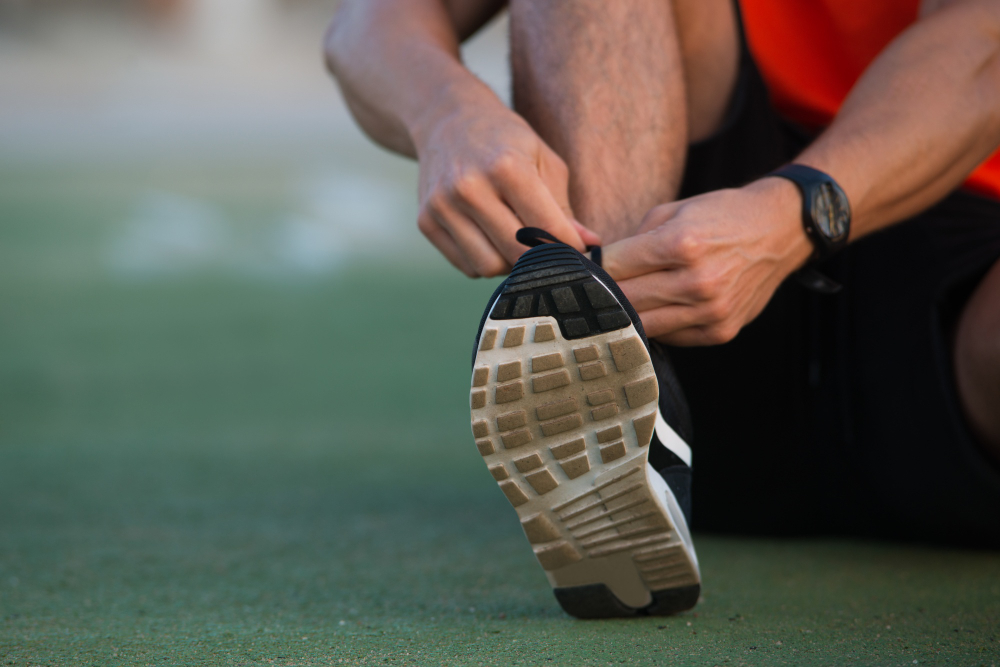Choosing the Right Shoes Helps Avoid Injury

How the Right Footwear can Prevent Common Injuries
In the world of physical fitness and health, the importance of selecting the right footwear cannot be overstated. Whether you are an athlete gearing up for a marathon or someone who enjoys leisurely walks in the park, the shoes you wear play a critical role in maintaining your overall well-being. Poorly fitted or inappropriate footwear can lead to a myriad of problems, from blisters and bunions to more severe issues like stress fractures and chronic joint pain. This blog post will explore how choosing the right shoes can help prevent injuries and enhance your physical therapy experience.
The Connection Between Footwear and Injury
Many people don't realize that the foundation of their body's physical structure begins at the feet. Your feet absorb shock and provide balance, making them essential for maintaining proper posture and alignment. When your shoes don't offer the right support, your body compensates in ways that can lead to pain and injury.
For instance, wearing shoes with inadequate arch support can lead to plantar fasciitis, a common cause of heel pain. Similarly, shoes without cushioning can fail to absorb impact, leading to stress fractures over time. It's crucial to select shoes that fit well, provide adequate support, and are appropriate for your activities to prevent these issues.
Key Factors in Choosing the Right Shoe
When selecting footwear, consider these critical factors to help reduce the risk of injury:
1. Fit and Comfort
Ensure that the shoes fit your feet comfortably, offering enough room for your toes to move freely without being too loose. A snug fit around the heel with a thumb's width between your toes and the shoe's front is usually the best.
2. Arch Support
People have different arch types—flat, neutral, or high. It's essential to choose shoes that complement your arch type to provide the necessary support and reduce the risk of injury. Specialized footwear stores often have tools to determine your arch type and recommend appropriate shoes.
3. Cushioning and Shock Absorption
The level of cushioning required varies depending on your activity. Running shoes, for example, need more cushioning to absorb the impact of your feet striking the ground repeatedly. Ensure that your shoes have adequate shock absorption to prevent stress-related injuries.
4. Activity-Specific Design
Different activities require different footwear designs. For example, running shoes are designed with forward motion in mind, while cross-training shoes offer lateral support for activities like aerobics or weightlifting. Choose shoes specifically designed for your primary activity.
5. Durability and Sole Traction
Consider the terrain where you'll be using the shoes most often. Shoes with durable soles and excellent traction are crucial for outdoor activities to prevent slips and falls.
Physiotherapy and the Role of Proper Footwear
Physiotherapy often involves exercises and movements that require stable support and balance. Wearing the right shoes during physiotherapy sessions can significantly enhance your recovery process by providing the support and protection your body needs to heal effectively.
If you're considering physiotherapy in Winter Springs, FL, contact B Physical Therapy today to schedule an appointment. Our experienced therapists can guide you in selecting the appropriate footwear for your therapy and everyday activities.
Case Study: The Impact of Proper Footwear
Consider the story of Sarah, a runner from Winter Springs who experienced frequent knee pain after her workouts. Upon consulting with a physiotherapist at B Physical Therapy, she learned that her shoes were inadequate for her foot type and running style. After replacing her footwear with a pair that offered better support and cushioning, and incorporating personalized physiotherapy sessions, Sarah's knee pain subsided significantly. She could enjoy running again without the fear of injury.
Tips for Buying the Right Shoes
- Shop at the Right Time - Feet tend to swell throughout the day, so it's best to shop for shoes in the afternoon when your feet are at their largest.
- Try Before You Buy - Always try on shoes before purchasing. Walk around the store to ensure they offer the necessary comfort and support.
- Consider Your Socks - Wear the type of socks you plan to use with the shoes when trying them on to ensure a proper fit.
- Prioritize Function Over Fashion - While style is important, prioritize shoes that provide the support and comfort you need for your activities.
- Listen to Your Body - Pay attention to any discomfort or pain while wearing shoes. This can be a sign that they aren't suitable for you.
Conclusion
Choosing the right shoes is a simple yet effective way to prevent injuries and support your overall health. By paying attention to fit, support, and activity-specific needs, you can protect yourself from potential harm and enhance your athletic performance or daily activities. If you need guidance on selecting appropriate footwear for your needs, or are considering physiotherapy in Winter Springs, FL, reach out to B Physical Therapy. Our team is here to help you achieve your health goals safely and effectively.